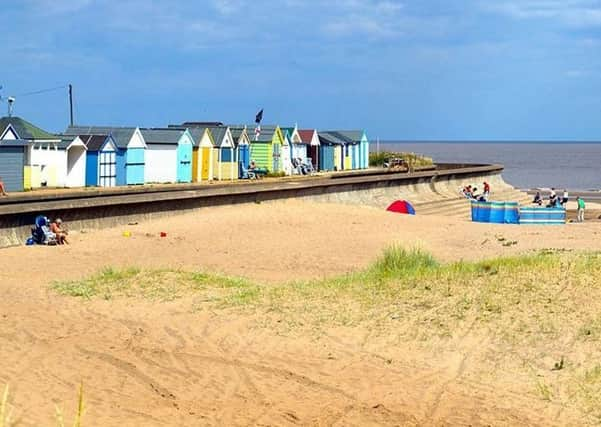Pottery find in Chapel St Leonards points to lost Roman settlement


The fragment was found by a dog walker in the sand at the end of June - making it the third Roman artefact unearthed there in just a few months.
Back in December, a Roman coin and part of a Roman brooch were also found in Chapel St Leonards.
Advertisement
Hide AdAdvertisement
Hide AdAs reported by this paper in September last year, the lost Roman settlement was believed to be somewhere in Skegness - with experts suggesting a Roman tower or fort could have been sited there.


It has long been known that ‘Old Skegness’ was swallowed by the sea in the 1500s, so any history of the area before that may have gone with it. But now it seems the ‘X’ which marks the spot could be closer to neighbouring Chapel St Leonards.
Dr Adam Daubney, Lincolnshire County Council’s finds liason officer, told the Standard: “Its hard to know what the sherd represents, though it probably has eroded from a Roman site under the sand somewhere along the beach.”
Other archaeological artefacts found on the beaches at Chapel St Leonards in recent years include medieval beads, pendants and coins, a medieval silver mount depicting Mary holding the lifeless body of Christ, and an iron age bracelet.
Advertisement
Hide AdAdvertisement
Hide AdThe county council is urging residents who find any ‘sea treasures’ to report the finds to them so they can keep a record.


Speaking about the whole of Lincolnshire’s coastline, a spokesman said: “Over the years we’ve seen some amazing discoveries, from prehistoric axes to Saxon beads and medieval pots. These finds have the potential to tell some incredible stories about how people used the coast in the past.”
Finds can be reported by emailing [email protected].